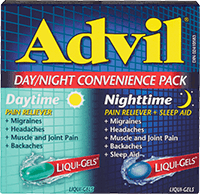Getting a good night’s sleep not only helps us wake up refreshed and alert, it enhances our quality of life. Sleep plays an important role in many parts of our health such as the repair of our heart and blood vessels, keeping our immune system healthy, and helping support overall growth and development.
Not all Sleep Is the Same
We have two main types of sleep which are rapid eye movement (REM) sleep and non-REM sleep. We don’t just need enough total sleep; we need enough of each type of sleep. The types of sleep can be further described in stages. Most of us pass through five phases of sleep that repeat in cycles, with our bodies responding differently to the various stages:
- Stage 1: occurs within minutes of nodding off, and usually lasts up to seven minutes.
- Stage 2: sleep is still relatively light as the brain waves begin to slow down.
- Stages 3 and 4: marks the beginning of deep sleep, when the body makes necessary repairs, stimulates growth and development, increases immune function, and builds up energy for the coming day.
- Stage 5: Rapid eye movement (REM) is when the brain is most active and dreaming occurs.
So How Much Sleep Do I Need?
The ideal amount of sleep varies from person to person, and it changes as we age. For most adults, 7-8 hours a night seems to be best. While the total amount of sleep and the amount of each sleep phase we get is important, it is also important that we’re sleeping at a time when our body is prepared and ready to sleep.
How Can I Sleep Better?
An over-the-counter pain reliever such as ibuprofen can help relieve some common pains that interfere with sleep (like headaches, back pain, muscle pain, and arthritis pain). In addition to ibuprofen, Advil Nighttime also includes diphenhydramine, a medicine that causes drowsiness. When used as directed, Advil Nighttime can help you fall asleep, and stay asleep longer.
Healthy habits—called sleep hygiene—can also help you get better, more restful sleep. Here are some tips:
- Establish a sleep schedule—go to bed and get up at the same time every day.
- Be physically active, but get your exercise early in the day.
- Develop a soothing before-bed routine. Avoid strenuous exercise and bright artificial light, such as from a TV or computer screen.
- Make your bedroom a sleep-friendly place. Keep it quiet, dark, and cool. Your pillow should keep the natural posture of your neck and support your spine. Firm mattresses are recommended, but medium-firm may be, better for those with back pain.
- Avoid heavy meals, excessive fluids, caffeine, alcohol, and nicotine close to bedtime.
- Try to limit daytime napping to 30 minutes.
- Pay attention to your sleep position. Be sure to maintain the natural curve of your spine and make sure your head, shoulders, and hips are in alignment.
If you are practicing sleep hygiene and your pain is still keeping you up at night, try Advil Nighttime to help say goodnight to sleepless nights.




